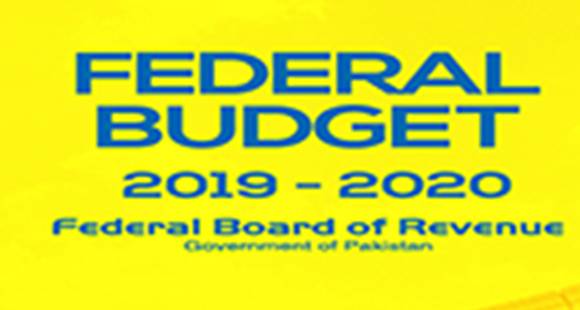ISLAMABAD: The government has planned to a massive cut tax in exemptions and concessions in the budget 2019/2020, which is scheduled to be announced on June 11, 2019.
Sources told PkRevenue.com that the government had committed with the World Bank and other international agencies to withdraw large size exemptions given to various sectors and individuals in order to boost revenue collection, especially in the wake of difficult economic situation.
The sources said that the Federal Board of Revenue (FBR) had already initiated policy making and would introduce phases to withdraw available tax concessions and exemptions.
According to Pakistan Revenue Mobilization Program funded by the World Bank, the FBR had already launched several initiatives including ongoing review of tax policy to formulate a medium-term tax policy framework and propose measures to reduce tax expenditure for the budget 2019/2020.
The cost of tax exemptions and concessions in the fiscal year 2017/2018 was around Rs541 billion, which included: income tax Rs61.78 billion; sales tax Rs281 billion; and customs duty Rs198.15 billion.
The sources said that in the first phase around 50 percent exemptions and concessions would be withdrawn in the budget 2019/2020.
The World Bank on Pakistan report said multiple exemptions and discounted rates to select industries, economic actors, and economic activities (e.g. sugar, textiles, and fertilizer industries; ‘associations’ in the real estate sector; imports for infrastructure projects under the China-Pakistan Economic Corridor) are granted in each year’s budget law, which distort competition and economic actors’ incentives. In FY2017/18, Pakistan’s tax expenditure (i.e., tax revenue foregone due to exemptions and concessional rates) was estimated at 2 percent of GDP, primarily due to exemptions from General Sales Tax (GST) and customs duties.
“Substantial exemptions also apply to property taxes, whereby properties below a certain size are exempted regardless of location, while revenue is also lost due to unrealistically low valuations used for taxation purposes.”
The Capital Gains Tax (CGT) returns negligible receipts due to the zero rate applied to capital gains from the sale of immovable property after more than four years of ownership, and rates of 5-10 percent for properties sold after one to four years of ownership, the report said.
The present PTI-led government has issued a roadmap for stability, growth and productive employment issued in April 2019 and stated that tax policy has to balance the revenue objective with equity and growth objectives.
Presently tax policy has a predominant revenue focus and as such is likely to create distortions in the economy which can adversely affect the growth and equity objectives.
In addition, even the revenue objective is compromised by large scale exemptions. To correct this shortcoming, the government intends the following:
i) Enact a law to ensure that no tax exemption is allowed through law or notification without an estimate of its cost independently by the tax department as well as the concerned ministry. Such cost will be made public before notification of the exemption.
ii) Review all existing exemptions, with the purpose of eliminating as many of those as possible. Even if an exemption is to be retained its cost will be determined and made public. Ministry of Finance to publish annually a statement of tax expenditures to show how much revenue is being foregone due to exemptions.
iii) Ensure that all exemptions, existing or newly proposed, will have a sunset clause (ideally not more than 5 years).
iv) Publish a list of all government owned, quasi-government and government-linked enterprises availing tax exemption/concession in any way along with quantification of the tax expenditure. In addition, a plan be prepared for phasing out of these concessions.
v) Withdraw FBR powers to issue SROs to grant exemptions. This power will vest only with the Parliament.
vi) Ensure that all non-procedural existing SROs will expire at the end of the fiscal year. Steps taken over the last two years to incorporate all exemptions granted through SROs to be made part of the body of law.







